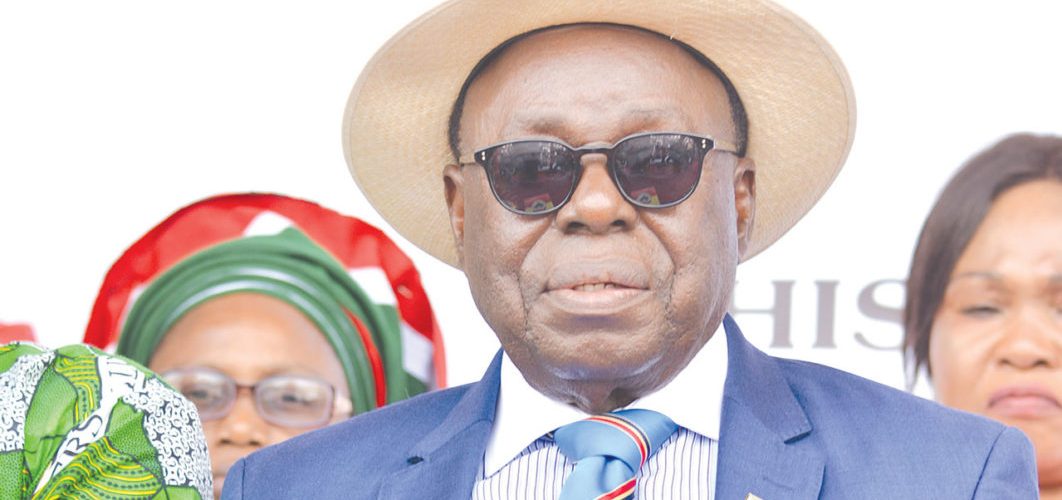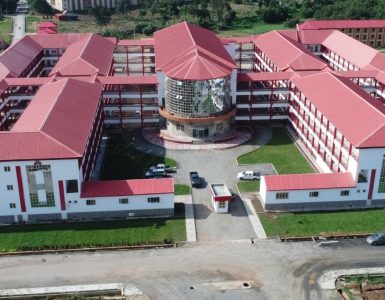By Aare Afe Babalola, SAN, OFR, CON
PRIOR to colonisation, hunger and famine were alien to most African countries as there was widely-acknowledged food sustenance.
Each household practised one form of farming or the other and consequently, there was enough to feed the family while the excess was exchanged by barter through some other forms of payment. This boom in food production had the effect of boosting the economy and therefore, the concept of begging for alms was totalling unheard of. There was no poverty, famine, or the incidence of begging in Africa. Lord Macaulay, in his address to the British Parliament on February 2, 1835, aptly remarked thus:
I have travelled across the length and breadth of Africa and I have not seen one person who is a beggar, who is a thief. Such wealth I have seen in this country, such high moral values, people of such calibre, that I do not think we would ever conquer this country, unless we break the very backbone of this nation, which is her spiritual and cultural heritage and therefore, I propose that we replace her old and ancient educational system, her culture. For if the African thinks that all that is foreign and English is good and greater than their own, they will lose their self-esteem, their native culture and they will become what we want them, a truly dominated nation.
Such is the importance attached to food sustenance that the Yorubas have a saying that, “once feeding ceases to be a challenge to a man, he has conquered poverty”. However, it seems that this is no longer the state of affairs as regards poverty and hunger.
Inadequate nutrition
Research has shown that Nigeria is currently experiencing its most severe food crisis which is manifested in the country’s inability to produce enough food to feed its population. Food shortage and hunger have resulted in the incidence of malnutrition and forced some Nigerians to engage in social vices such as armed robbery, prostitution, child trafficking, corruption, among others, to sustain their daily living, and of course, these all have a negative impact on the nation.
Since time immemorial, inadequate nutrition has been linked to lawlessness as hungry men are easy targets for recruitment by ill-meaning politicians to foment trouble and anarchy for selfish political gains during electoral campaigns. On election day, politicians resort to giving out food items including loaves of bread to secure votes from the poorly-nourished citizenry. But how did the nation degenerate from a situation of food surplusage to present scarcity and potential famine?
Insecurity: One of the identified causes in recent times is insecurity. In light of the recent, unrepressed killings of farmers in northeastern Nigeria by armed bandits and Fulani herdsmen, food production has grossly reduced from this region. Besides these senseless killings, these armed assailants now demand the payment of harvest fees from the farmers. Farmers who failed to comply would either be killed or maimed, with the whole harvest getting destroyed. As a result of this insecurity, food scarcity is imminent, and if left unbridled, famine is inevitable, particularly in the coming year.
COVID-19 induced lockdown: Also, the outbreak of the COVID-19 pandemic, which occasioned a lockdown of business activities in several states in Nigeria, contributed to the situation of poverty and hunger in Nigeria. Many farmers were for months, at the time they were supposed to be planting, unable to access their farms. By the time the government relaxed the lockdown to allow farmers the opportunity to farm, the damage had been done.
While the lockdown was laudable and was the Nigerian government’s immediate response to the pandemic just as in other foreign nations, the Nigerian government, however, failed to put in place the measures taken by those foreign governments to alleviate the sufferings of the masses. Several foreign governments gave out financial assistance to individuals and businesses. Therefore, the paralysis of business activities and the failure of the Nigerian government to effectively put adequate mollifying measures in place, no doubt, contributed to unemployment and the incidence of begging particularly among Nigerians who depend on the daily income for sustenance.
Climate change: Climate change has equally been identified as a contributory factor to the incidence of food scarcity in Nigeria. It is a known fact that the planting season usually commences in March, particularly in Southwest Nigeria. From time immemorial, much rainfall use to occur in the months of March, April and May to late August, September, October, November. However, in 2020 farmers’ expectation of rain failed. Between May and July, the farms were flooded.
The crops which were planted in late August and early September dried up due to unexpected drought in the month of November. The immediate effect of this, therefore, is that farmers that planted maize, rice, beans, etc., in early September lost most of if not all the crops. This has resulted in an increase in the production cost of poultry farming, frozen chicken and egg production.
In fact, in a newspaper report, captioned Maize will be scarce in 2021; Maize farmers raise alarm, farmers in Oke-Ogun area of Oyo State reportedly decried the failure of the Nigerian government to support agricultural production and unstable rainfall. The head of the maize farmers’ union reported noted thus:
Many of our members have decided not to plant maize again because of the poor and unstable rainfall when they heard about the government’s forecast through the meteorology department as well as the rigorous campaign from Oyo State Ministry of Environment and Water Resources that there would be lot of rain towards the end of October and November, they sought for the fund to plant maize. It is very unfortunate that the failed forecast led to a staggering loss to our members.
They lost millions in bank loans and borrowing from family and friends to plant maize, many cannot even pass by their farms to see the withered maize farms, we are so hurt by this occurrence… Our fear, for now, is what will be the fate of poor Nigerians that depend largely on basic food items that are sourced from maize. It is easy to predict that there will be a scarcity of maize next year with what happened this year unless the government quickly evolves a way out to assist farmers to surmount this problem.
No doubt, the effect of the lack of maize in the market is that prices of chicken and eggs will increase, and indeed, it already has, due to the present scarcity of maize as the primary ingredient of chicken feed. In a market survey carried out on the price surge in staple food items between the year 2019 and 2020, one would see the hopeless reality of the food production in Nigeria, and the potential farming heading Nigeria’s way in the coming year 2021 if no drastic measures are taken to curb the trend. I have made a graphical representation as depicted in the chart on this page.
From the foregoing chart, therefore, it is glaring that there is an astronomical increase in the price of food items without any attendant increase in the earning capacity of Nigerians. The situation is made worse by the current inflation rate in Nigeria which is at an all-time high.
Way forward
With the current trend of events, the year 2021 presents a gloomy near-future for food production and sustenance in Nigeria. Without effective measures being put in place, Nigeria may be plunged into full-fledged famine. There is, therefore, no more-important time than now to boost agricultural production in Nigeria.
One of the most important measures which the Nigerian government can put in place to boost agriculture is to empower farmers en masse. In order to achieve this, the government must make provisions for improved farming equipment, implements and tools, modern irrigation techniques to ensure planting even in the absence of rainfall, standardised price control, provision of agro-based loans, provision of pesticides and use of proven scientific methods to improve crop protection and animal health, among others.
Also, the construction of good, accessible roads will ease the transportation of harvested farm produce to the market where consumers can easily purchase them. Likewise, the government can establish processing and storage facilities for agricultural produce; for instance, tomato processing plants, palm oil and rice mills, improved silos for grains, provision of chemicals for the preservation of harvests, and provision of refrigerated trucks for transportation of fish and meat.
Finally, the incidence of insecurity, particularly as it affects farmers who produce food for local consumption, now calls for immediate response by the government. In order to forestall the distasteful interplay between insecurity, famine and hunger, the key players in food production must be adequately protected as without them, the year 2021 may just be the year that Nigeria is plunged into famine, headlong.
















Add comment